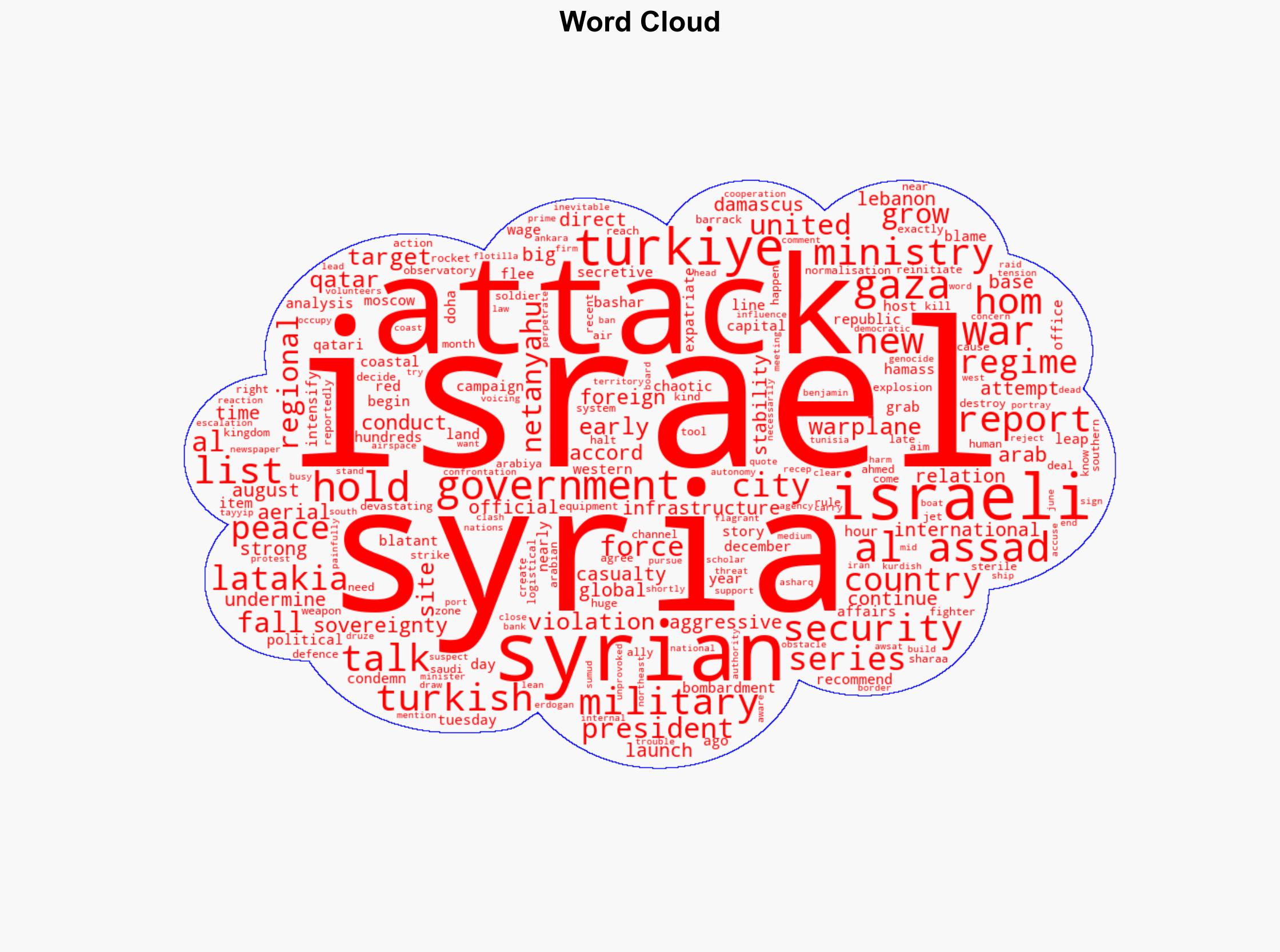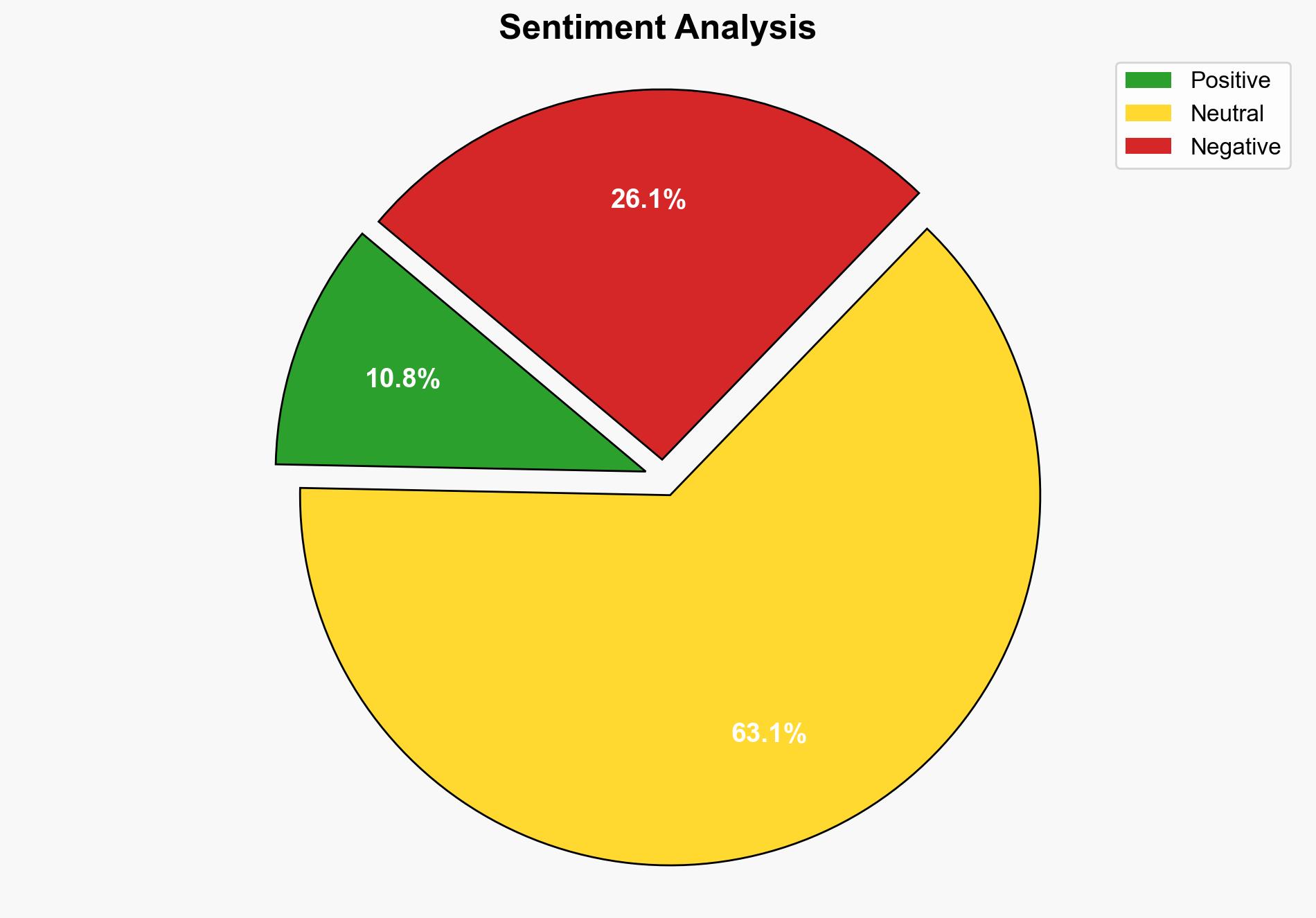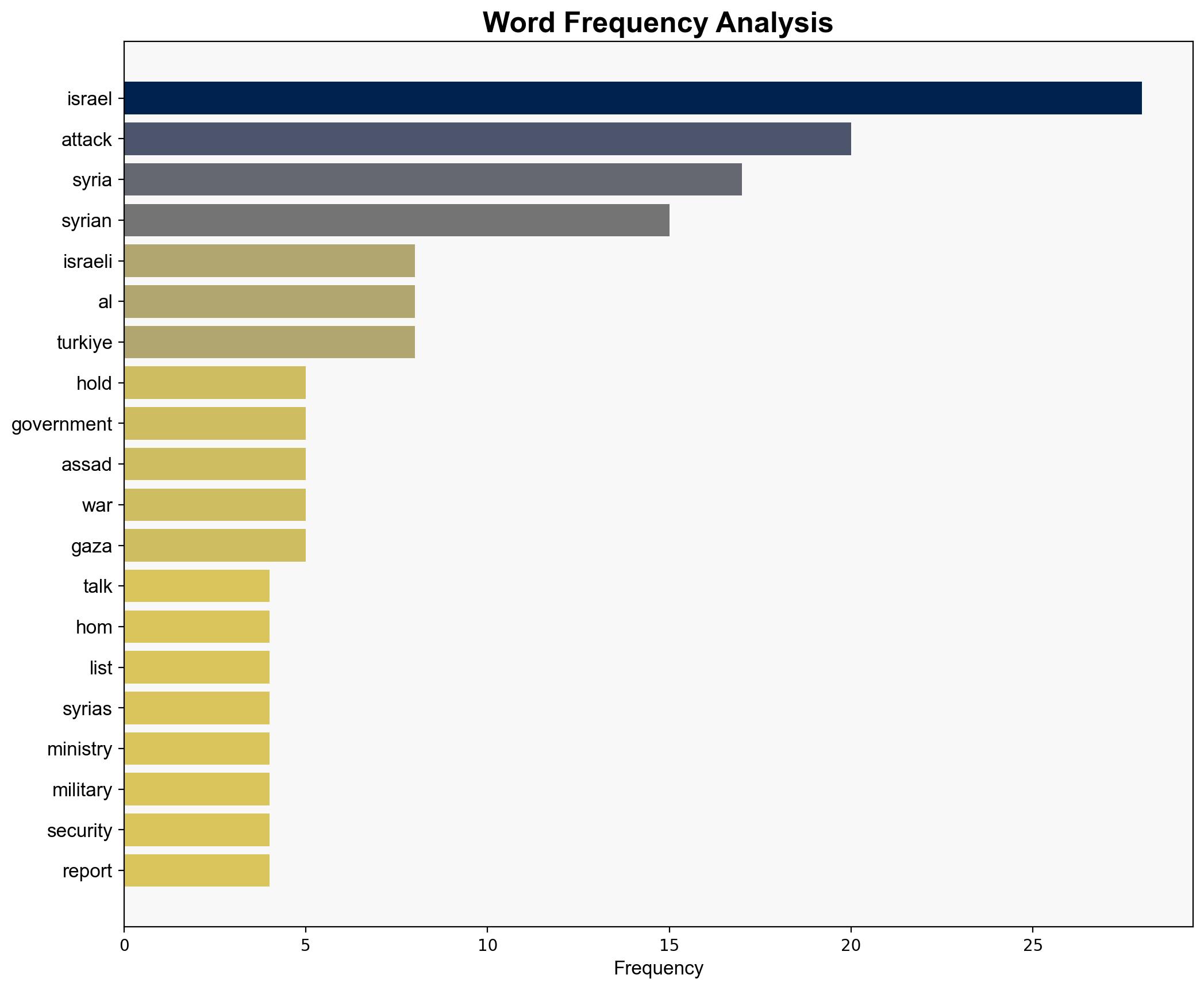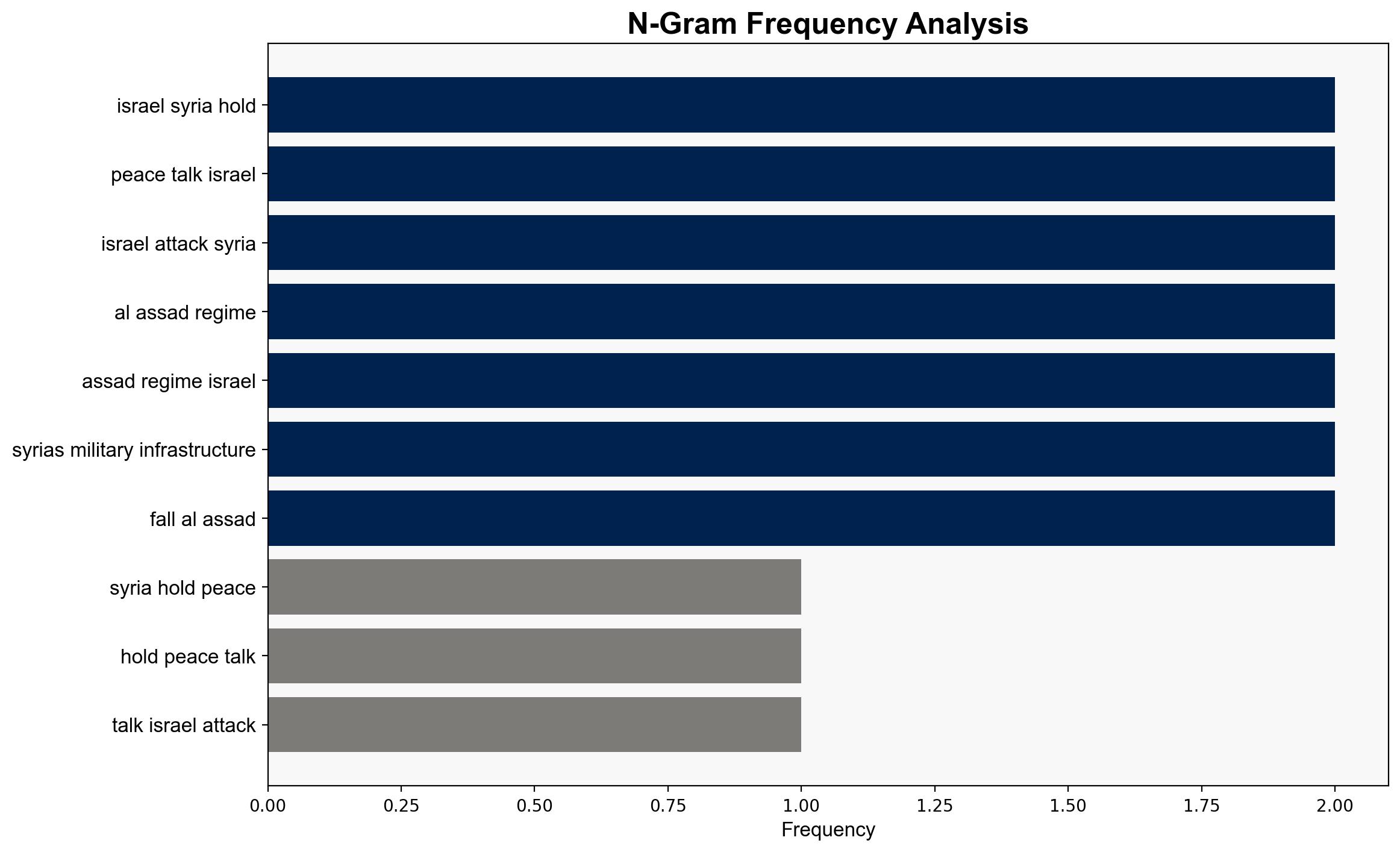Israel and Syria have held peace talks Why then did Israel attack Syria – Al Jazeera English
Published on: 2025-09-10
Intelligence Report: Israel and Syria have held peace talks Why then did Israel attack Syria – Al Jazeera English
1. BLUF (Bottom Line Up Front)
The most supported hypothesis is that Israel’s attack on Syria is a strategic move to counter perceived threats from growing Syrian-Turkish military cooperation and to maintain regional military superiority. Confidence level: Moderate. Recommended action: Monitor Israeli-Syrian interactions and Turkish-Syrian military developments closely to anticipate further escalations.
2. Competing Hypotheses
1. **Hypothesis A**: Israel attacked Syria to disrupt the Syrian-Turkish military cooperation, which poses a strategic threat to Israel’s regional dominance. This is supported by reports of Turkish rocket and aerial defense equipment being targeted and the growing Syrian-Turkish relations.
2. **Hypothesis B**: Israel’s attack is a continuation of its policy to prevent the consolidation of military threats near its borders, irrespective of peace talks. This is supported by Israel’s historical pattern of preemptive strikes to maintain a “sterile zone” in southern Syria.
Using ACH 2.0, Hypothesis A is better supported due to the specific targeting of Turkish military assets and the timing of the attack amidst growing Turkish influence in Syria.
3. Key Assumptions and Red Flags
– Assumption: Israel perceives Syrian-Turkish cooperation as a direct threat.
– Red Flag: Lack of direct Israeli statements confirming the motive behind the attack.
– Blind Spot: Potential internal Israeli political dynamics influencing military decisions.
– Cognitive Bias: Confirmation bias may lead to overemphasizing the Turkish angle without considering other strategic factors.
4. Implications and Strategic Risks
– **Geopolitical**: Increased tensions between Israel and Turkey could destabilize regional alliances.
– **Military**: Escalation of military engagements could lead to broader conflict involving multiple state actors.
– **Economic**: Regional instability could impact energy markets and trade routes.
– **Psychological**: Heightened regional tensions may increase domestic pressures within involved countries.
5. Recommendations and Outlook
- Enhance intelligence sharing with allies to better understand Israel’s strategic calculations.
- Engage in diplomatic efforts to de-escalate tensions between Israel, Syria, and Turkey.
- Scenario Projections:
- Best Case: Diplomatic intervention leads to renewed peace talks and reduced military actions.
- Worst Case: Further military escalations lead to a wider regional conflict.
- Most Likely: Continued low-intensity conflicts with sporadic diplomatic engagements.
6. Key Individuals and Entities
– Benjamin Netanyahu
– Recep Tayyip Erdogan
– Bashar al-Assad
– Syrian Observatory for Human Rights
7. Thematic Tags
national security threats, regional focus, military strategy, geopolitical tensions





